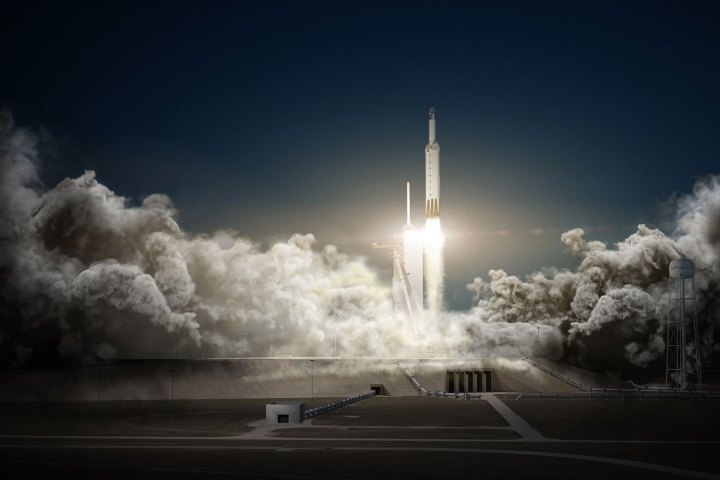
In a statement, ULA representatives explained their decision not to compete for the contract, citing the alliance’s financial issues, and limitations on its go-to rocket engines (which are made in Russia) due to trade sanctions. It’s a big victory for SpaceX, but although the contract was signed this week, it will still take two years to bring to fruition – Elon Musk and the SpaceX team will launch their GPS satellite from Florida in May of 2018.
It seems that another reason ULA didn’t compete for the satellite contract is SpaceX’s reputation for unusually low pricing – a reputation built on Musk’s mission to offer affordable civilian travel to Mars. Of course, that same reputation for affordability played a big role in helping SpaceX appeal to Air Force top brass: “This GPS III Launch Services contract award achieves a balance between mission success, meeting operational needs, lowering launch costs, and reintroducing competition for National Security Space missions,” said Lieutenant General Samuel Greaves, head of the Air Force’s Space and Missile Systems Center.
With nearly $83 million in contractual funding, SpaceX (or Space Exploration Technologies, as the company is officially known) will produce a Falcon 9 rocket complete with spacecraft integration, required certification for spaceflight, and operations to facilitate the launch of the satellite in 2018.
SpaceX is already working on more than $10 billion worth of launch service contracts for NASA and other space exploration groups, so the military move isn’t a huge surprise for the company. On the other hand, open contract competitions are a big change for the US military. Now that the ULA monopoly has been broken, the Air Force plans to hold open contract bidding for at least eight more satellite launches before the end of 2018.
Editors' Recommendations
- SpaceX gets big hint from FAA on next Starship launch opportunity
- How to watch SpaceX Crew-4 astronauts launch to ISS
- How to watch SpaceX launch a U.S. spy satellite today
- SpaceX birthday video celebrates its first 20 years
- How to watch SpaceX’s 10th rocket launch of 2022


